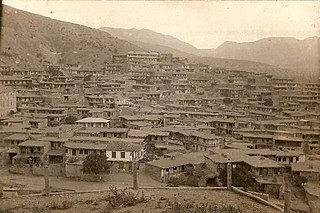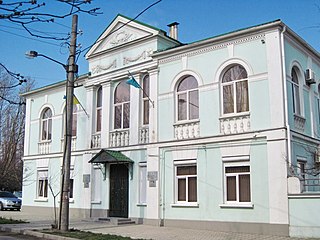Nationalism is an idea and movement that promotes the interests of a particular nation, especially with the aim of gaining and maintaining the nation's sovereignty (self-governance) over its homeland. Nationalism holds that each nation should govern itself, free from outside interference (self-determination), that a nation is a natural and ideal basis for a polity and that the nation is the only rightful source of political power. It further aims to build and maintain a single national identity, based on shared social characteristics of culture, ethnicity, geographic location, language, politics, religion, traditions and belief in a shared singular history, and to promote national unity or solidarity. Nationalism seeks to preserve and foster a nation's traditional cultures and cultural revivals have been associated with nationalist movements. It also encourages pride in national achievements and is closely linked to patriotism. Nationalism is often combined with other ideologies such as conservatism or socialism.

Population transfer in the Soviet Union was the forced transfer of various groups from the 1930s up to the 1950s ordered by Joseph Stalin. It may be classified into the following broad categories: deportations of "anti-Soviet" categories of population, deportations of entire nationalities, labor force transfer, and organized migrations in opposite directions to fill ethnically cleansed territories. Dekulakization marked the first time that an entire class was deported, whereas the deportation of Soviet Koreans in 1937 marked the precedent of a specific ethnic deportation of an entire nationality.

According to its Constitution, Russia is divided into 85 federal subjects, 22 of which are "republics". Most of the republics represent areas of non-Russian ethnicity, although there are several republics with Russian majority. The indigenous ethnic group of a republic that gives it its name is referred to as the "titular nationality". Due to decades of internal migration inside Russia, each nationality is not necessarily a majority of a republic's population.

Pan-Turkism is a political movement which emerged during the 1880s among Turkic intellectuals of the Russian region of Shirvan and the Ottoman Empire, with its aim being the cultural and political unification of all Turkic peoples. Turanism is a closely related movement but a more general term than Turkism, since Turkism applies only to Turkic peoples. However, researchers and politicians steeped in Turkic ideology have used these terms interchangeably in many sources and works of literature. Although many of the Turkic peoples share historical, cultural and linguistic roots, the rise of a pan-Turkic political movement is a phenomenon of the 19th and 20th centuries. It was in part a response to the development of Pan-Slavism and Pan-Germanism in Europe, and influenced Pan-Iranism in Asia. Ziya Gökalp defined pan-Turkism as a cultural, academic, and philosophical and political concept advocating the unity of Turkic peoples. Ideologically, it was premised on social Darwinism.
In politics, regionalism is a political ideology focusing on the "development of a political or social system based on one or more" regions and/or the national, normative or economic interests of a specific region, group of regions or another subnational entity, gaining strength from or aiming to strengthen the "consciousness of and loyalty to a distinct region with a homogeneous population", similarly to nationalism. More specifically, "regionalism refers to three distinct elements: movements demanding territorial autonomy within unitary states; the organization of the central state on a regional basis for the delivery of its policies including regional development policies; political decentralization and regional autonomy".
The Crimean Tatar diaspora dates back to the annexation of Crimea by Russia in 1783, after which Crimean Tatars emigrated in a series of waves spanning the period from 1783 to 1917. The diaspora was largely the result of the destruction of their social and economic life as a consequence of integration into the Russian Empire.
Racism in Russia appears mainly in the form of negative attitudes and actions by some Russians toward people who are not ethnically Russian. Traditionally, Russian racism includes anti-Semitism and Tatarophobia, as well as hostility towards various ethnicities of the Caucasus, Central Asia, East Asia and Africa. In 2006, Amnesty International reported that racism in Russia was "out of control." Russia also has one of the highest immigration rates in Eastern Europe.

Islam is the fourth-largest religion in Ukraine, representing 0.6%–0.9% of the population. The religion has a long history in Ukraine dating back to the establishment of the Crimean Khanate in the 15th century.

Russian nationalism is a form of nationalism that promotes Russian cultural identity and unity. Russian nationalism first rose to prominence in the early 19th century, and became closely related to pan-Slavism, from its origin during the Russian Empire to the Soviet Union and beyond. However, Russian nationalism in contemporary discussion is either viewed as a form of ethnic nationalism or multi-racial nationalism.
Russia is a multinational state with over 190 ethnic groups designated as nationalities; the populations of these groups vary enormously, from millions to under 10,000.

The Mejlis of the Crimean Tatar People is the single highest executive-representative body of the Crimean Tatars in period between sessions of the Qurultay of the Crimean Tatar People.

The Deportation of the Chechens and Ingush, also known as Aardakh, Operation Lentil was the Soviet forced transfer of the whole of the Vainakh populations of the North Caucasus to Central Asia on February 23, 1944, during World War II. The expulsion was ordered by NKVD chief Lavrentiy Beria after approval by Soviet Premier Joseph Stalin, as a part of a Soviet forced settlement program and population transfer that affected several million members of non-Russian Soviet ethnic minorities between the 1930s and the 1950s.

Circassian nationalism is the desire among Circassians all over the world to preserve their culture and save their language from extinction, achieve full international recognition of the Circasian genocide, globally revive Adyghe Xabze among Circassians, return to their homeland Circassia, and ultimately reestablish an independent Circassian state, which lost its independence in 1864 after the Russian–Circassian war, and restore its borders before the Russian invasion.
Balkar and Karachai nationalism is the national sentiment among the Balkars and Karachai. It generally manifests itself in:
Cyber-nationalism is nationalism which bases its activity on the internet. Cyber-nationalism has different aspects, which may help the government as a part of the propaganda. As a social phenomena, cyber-nationalism is nationalistic groups who are gathering on the internet. They often perform offensive actions against other countries, such as hacking and trying to affect elections. This phenomenon can be found in several countries such as Japan, Russian Federation, and China.
Soviet leaders and authorities officially condemned nationalism and proclaimed internationalism, including the right of nations and peoples to self-determination. While the Soviet Union did not practice "racial politics" and was supportive of self-determination and rights of many minorities and colonized peoples, it significantly marginalized people of certain ethnic groups designated as "enemies of the people", pushed assimilation of, and promoted chauvinistic Russian nationalistic and settler-colonialist activities their lands, in stark contrast to earlier Leninist policies. While Lenin supported and implemented policies of korenization, Stalin reversed much of his predecessor's previous internationalist policies, signing off on orders for exiling multiple distinct ethnic-linguistic groups brandished as "traitors", including the Balkars, Crimean Tatars, Chechens, Ingush, Karachays, Kalmyks, Koreans, and Meskhetian Turks, who were collectively deported to Siberia and Central Asia where they were legally designated "special settlers", meaning that they were officially second-class citizens with few rights and were confined within a small perimeter. After the death of Stalin, Khrushchev criticized the deportations based on ethnicity of in closed section of his Report to the 20th Congress of the Communist Party of the Soviet Union, describing them as "monstrous acts" and "rude violations of the basic Leninist principles of the nationality policy of the Soviet state." Soon thereafter in the mid to late 1950's most deported peoples were fully rehabilitated, having been allowed the full right of return and their national republics were restored — except for the Koreans, Crimean Tatars, and Meskhetian Turks, who were not allowed such right of return and were kept tethered to Central Asia. The government subsequently took a variety of measures to prevent such deported peoples from returning to their native villages, ranging from denying residence permits to people of certain ethnic groups in specific areas, referring to people by incorrect denonyms to minimize ties to their homeland, arresting protesters for requesting return to Leninist policies with right of return, and spreading racist propaganda demonizing
Freedom of religion in Ukraine refers to the extent to which people in Ukraine are freely able to practice their religious beliefs, taking into account both government policies and societal attitudes toward religious groups. Due to the ongoing Russian military intervention in Ukraine, some regions which are de jure and internationally recognized as parts of Ukraine are administered either by Russia or by separatist groups.

Fauziya Bayramova is a Tatar politician and writer. She was a founder of the Tatarstan independence party The Ittifaq Party. From 1990 to 1995 she was a member of the State Council of the Republic of Tatarstan. From 1994 to 1997 she was the chair of the Mejlis of the Crimean Tatar People, the unrecognized Tatar parliament, which she helped to establish. She was also a contributor to the constitution of Tatarstan. She has written a number of political manifestos and histories, focusing on topics relating to the Tatar people and their political circumstances, and has worked as a journalist and publisher.
Anti-Chechen sentiment or Chechenophobia, Noxchophobia and Anti-Chechenism refers to fear, dislike, hostility, and racism towards ethnic Chechens and anything related to Chechen culture and North Caucasian culture in general. Anti-Chechen sentiment has been historically strong in Russia, and, for some part, spread to the other countries such as former Soviet Union like Azerbaijan, Armenia, to Europe, Middle East (Syria) to further United States. The causes of hatred against Chechens have been largely due to Chechens' aggressive behaviors, criminal activities, violent mentality of Chechens and its adherence to Islam.








